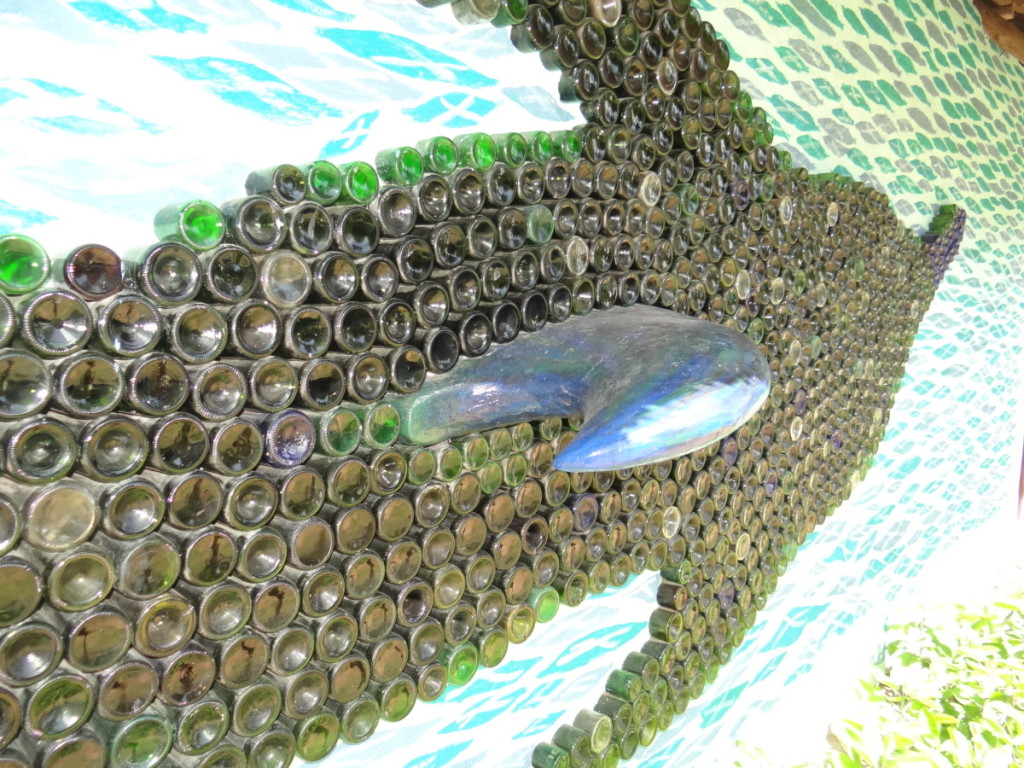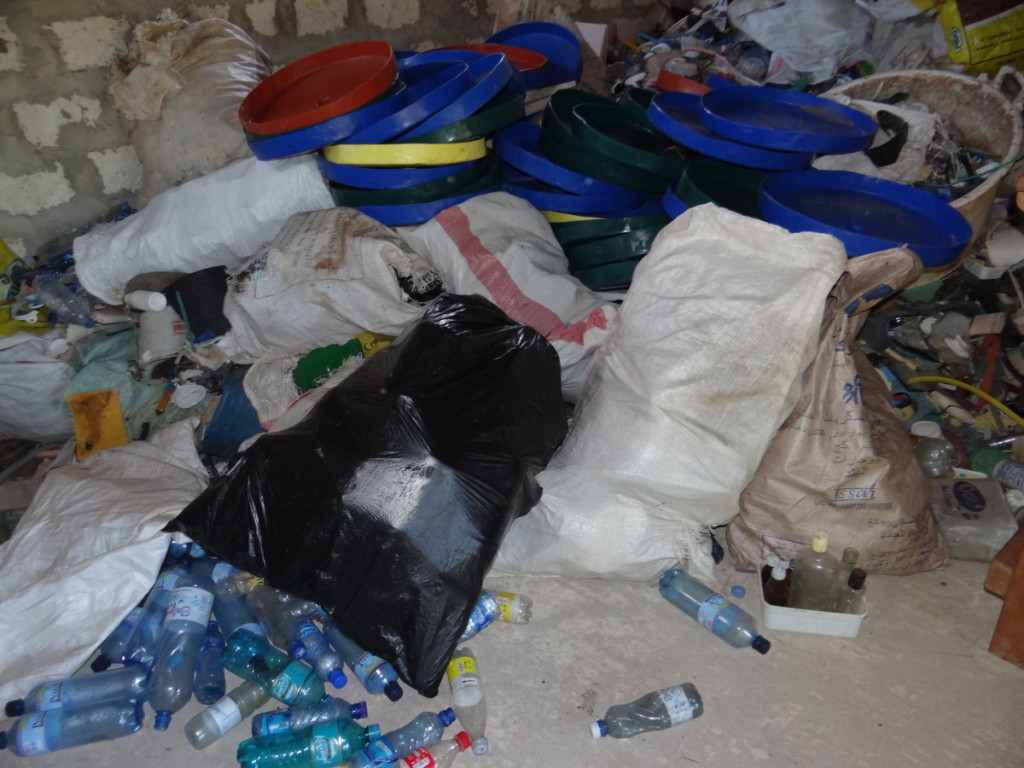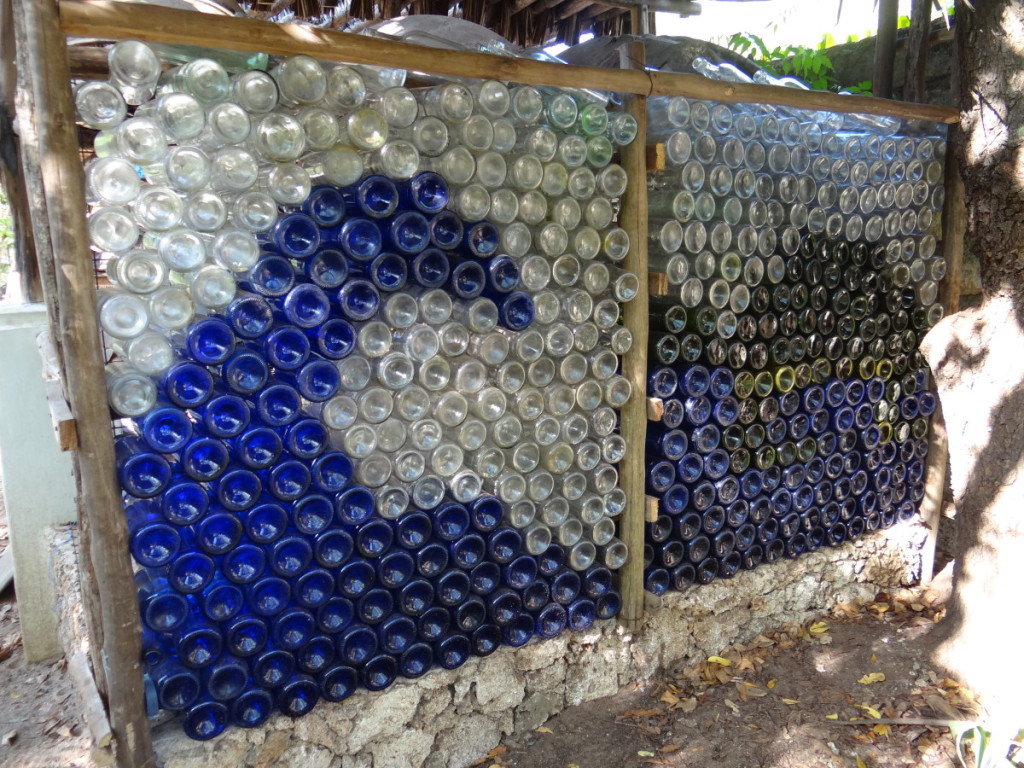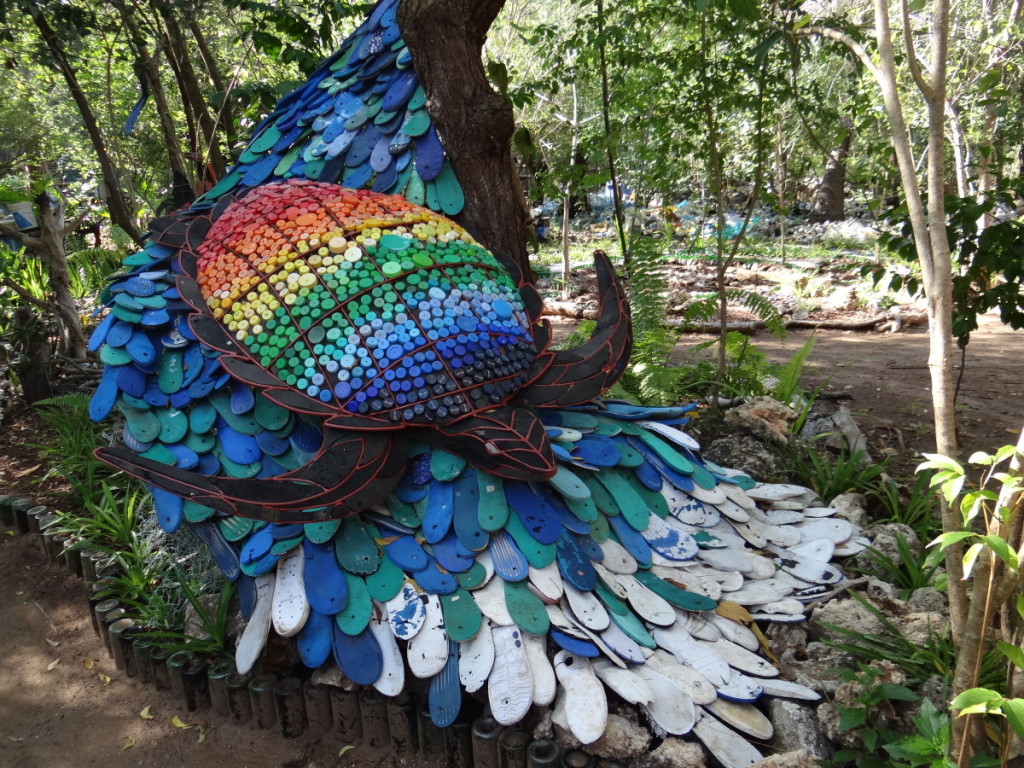“What A Load Of Rubbish,” says Explorason as we walk into a building and inside are piles and piles of RUBBISH. Immediately before us, there are barrels of BLUE plastic waste, collected from the local beaches.
Recently we stayed at Turtle Bay Club in Kenya. Whilst we were there we noticed a board that listed how many kilograms of rubbish they collected off the beach at the Watamu Marine National Park each day. This impressed me, and so I started to ask more and found out about their recycling programme.
Then we met a lovely chap named Steve who runs the local hard rubbish Community Recycling Programme, and he invited us to visit. We were delighted as this would form part of our world-schooling. Because discarding rubbish on beaches, and the sides of roads, well it makes me feel blue!
Steve picked us up from Turtle Bay Club and kindly drove us to the Community Recycling Programme center, where my son started learning from the second we pulled up under the cashew tree. For starters, he had never seen a cashew tree or eaten one (we rectified this in coming days). This was the first lesson from Steve.
And Explorason LOVED the “Bottlenose Dolphin” by Andrew MacNaughton Beach Artist and Sculptor made from over 1,000 glass bottles.
Inside he started to count the bottles, but lost track – I wonder why?
But inside or out, it was an incredibly stunning piece of artwork.

Steve takes us inside and we see piles of rubbish. He explains how non-biodegradable waste is polluting the beaches, and how it is affecting the marine life. Those thin shopping plastic bags and other materials can be ingested by some of the endangered sea turtles, as they mistake them for jellyfish which are part of their natural diet. Other wastes are also ingested by the sea turtles. The turtles eventually die due to internal gastric problems, and blocked tubes cause starvation causing the turtles to float, then die.

Plastics are also ingested by some dolphins and also the whales. Whales, dolphins and whale sharks can all be found in Watamu Marine National Park waters. Plastics and other waste materials also cover and damage corals and other marine creatures living on the seabed, inhibiting them from breathing and feeding. If the reef or Watamu National Marine Park becomes damaged, this also damages tourism – which is their primary source of income and employment.
Steve commences the inside world schooling lesson by showing us how the locals can make their own charcoal briquettes.
Next, we start to examine all the waste plastic lying around in tubs.
Explorason gets to feed a tub of plastic into the machine.
This then grates/grinds it down into small pieces.
From here it is sent off to be melted and turned into plastic tubs (like the one Explorason is holding above) and other great items.
We then head outside. Piles of water and soda bottles are filled with sand. These are ready to make walls with.

Explorason examines the side wall they have completed. It protects their vegetable patch nicely.
Here in their garden, they use animal manure, and also the vegetable waste from the Turtle Bay Club where we are staying is turned into cooking vapor fuel.
We wander around their garden and see all the vegetables and herbs they are also growing. It is a great project and worth a visit if you come to Watamu.
We also visited the Local Ocean Trust: Watamu Turtle Watch one day with the staff from the Kids Club at Turtle Bay Club. Off to the side, they are starting to make a garden with recycled waste.
The first garden bed, of course, is the outline of a turtle.
Paths are made with plastic water bottles.
Other marine wastes are used to decorate and make art here in the garden.
And collected bottles form walls in the shape of the ocean waves.

But our favorite is the (thong to Australians) flip-flop rubber art.
Explorason loves this turtle. It is made with bottle tops too.
Isn’t it incredible?

Back at Turtle Bay Club, there are also various art pieces made from a flip-flop (thongs to Australians). Amazing pieces of work like this one below.
And Turtle Bay Club is very big on Responsible Tourism. In fact, it just won the 2015 Silver World Responsible Tourism Award.
We ask if we can have a tour to the back blocks where they use the wastewater to add to our recycling education day.
Here they are treating it so it can be used for watering the gardens and flushing toilets.
Staying at a resort like Turtle Bay Club we use a lot of our time to explore how they work. The vegetable and food waste from the kitchen is made into compost. We love how they care for the environment, and we also love how they do not waste food either.
And one day I go into Watamu Village and there. in front of me, is a local man using a non-electric sewing machine.
But what he is making is amazing. He is using the old cement bags and turning them into groovy bags and backpacks for the tourists. How cool is that? An excellent recycling idea.
Watamu really has a lot to offer. It is not just a holiday destination, it is a place where we learn about the environment, and about how they are helping Kenya both now and for the future.
Well done Watamu – and thanks to all that make our stay a special time here.
Feeling Blue? What a load of rubbish – get out and get recycling!
Steve Trott – Projects Development Manager
Watamu Marine Association – PO Box 120, Watamu 80202, Kenya, Africa
Website – http://www.watamu.biz/
Facebook – http://www.facebook.com/watamumarineassociation
Twitter – https://twitter.com/WatamuMarine
Bookings for Turtle Bay Club: Click Here
Website: http://www.turtlebaykenya.com
Turtle Bay Club Address: Mida Creek Road, 80202 Watamu, Kenya, East Coast of AFRICA
Questions and Comments
- How can you help conserve our beautiful environment?
- Are there more items you know of that can be recycled but are currently not being salvaged?
- Share your knowledge with us by dropping us a comment below.
